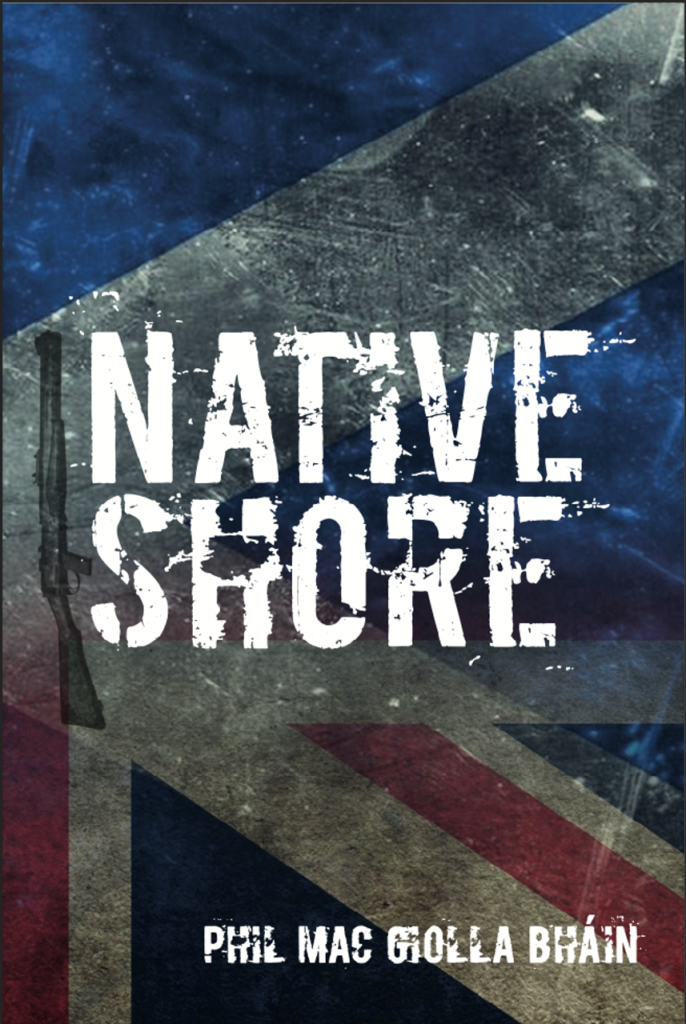Finished this novel in the early hours and just wanted to congratulate the author, journalist and playwright Phil Mac Giolla Bháin, for the way he melded and contrasts aspects of the republican struggle for a united Ireland with Scotland’s attempt to secure independence, and the subversion of that objective by spooks and securocrats.
This entertaining, ingenious thriller, and a cautionary tale not beyond the bounds of the impossible, is multi-layered, replete with a cast of fully-realised characters in recognisable settings, with plot lines that make Native Shore a real page-turner.
Scotland, under a feisty SNP First Minister Jeannette Laird, is nearing the tipping point of realising independence through the ballot box for the first time since 1707. But there then begins a series of anonymous but informed online attempts to discredit and undermine Laird using details of her past youthful sexual encounters. When the Scottish National Party seeks a second independence referendum the request is imperiously rejected by Westminster and some consider but resile from going down the ‘Catalonian route’. Then, out of the blue there is a raid for arms followed by a number of killings claimed by the purported Scottish National Liberation Army, the SNLA, reorganised and impatient with the pace of change.
However, rather than galvanise pro-independence sentiment the actions destablise Holyrood, the seat of the assembly, and intensify the sectarian divide, particularly in Glasgow (along the traditional fault-lines epitomised by the perennial confrontation between Celtic and Rangers). This all gives Westminster the pretext to suspend the Assembly, impose direct rule and deploy the British army on the streets.
The crisis tests the mettle of the besieged First Minister who draws on the memory of her late father, ‘Ming’ Laird, a former WWII SOE operative who worked with the French maquis.
Into this maelstrom is drawn ex-IRA intelligence officer, Gerry O’Donnell, who is on a break from Donegal, ‘honeymooning’ with his Colombian wife in the Highlands when the crisis unfolds. O’Donnell also featured as the main character in Mac Giolla Bháin’s 2018 novel The Squad.
He quickly assesses the situation and concludes that the SNLA represents a false flag operation, organised, as of old, by the same British Intelligence service whose machinations in Ireland he had played a prominent role in defeating. Using his old skillsets, he gets involved out of solidarity with the right of a small nation to be free and teams up, to his own surprise, with a former branch man who is being set-up as a patsy by the authorities, not unlike the scenario that befell the late John Stalker.
Times have changed and in place of IRA active service personnel O’Donnell mobilises a Fifth Estate of cyber warriors, involving several nationals, to defeat and expose the Brits.
There’s a rule in life (nothing to do with the much-slandered, eponymous ‘Murphy’) that if anything can go wrong it will go wrong at the worst possible time, and the hubristic MI5 and its ruthless agents are outed by—well—their hubris and the fact that they are not as clever as they think.
Despite its 400 pages the drama never flags due to Mac Giolla Bháin’s skilful plotting, the switching from scene-to-scene at key moments which increases the tension and hooks you to the story.
This novel would make for a great Netflix series and not only for its Borgen-esque depiction of Holyrood political intrigue with aspects of betrayal, collusion and collaboration competing with integrity and bravery, but for its portrayal of turpitude at the heart of imperial power in London whose ‘moral’ standard is that any unconscionable action, however bloody and despicable, is justified in Defence of the Realm.


